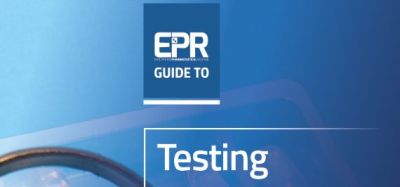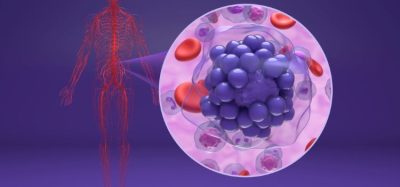First treatment recommended for infants with Wolman Disease
Posted: 27 November 2023 | Catherine Eckford (European Pharmaceutical Review) | No comments yet
Alexion’s intravenous enzyme replacement therapy has been recommended for the ultra-rare disease by the National Institute for Health and Care Excellence (NICE).


The National Institute for Health and Care Excellence (NICE) has recommended enzyme replacement therapy sebelipase alfa (Kanuma ®▼) in final draft guidance. Alexion’s (AstraZeneca Rare Disease) intravenous treatment is recommended for children who have been diagnosed with Wolman Disease at two years old or younger.
This ultra-rare metabolic disease occurs due to lysosomal acid lipase (LAL) enzyme deficiency. This leads to a lipid build-up in vital organs such as the liver, blood vessels and other tissues, and is usually fatal for these individuals within their first twelve months of life, Alexion reported.
How does the enzyme replacement therapy work?
Kanuma replaces the deficient LAL enzyme and reduces the accumulation of fatty materials in cell lysosomes in the body.
NICE’s recommendation means that “babies born with Wolman Disease and their parents access to a new treatment option,” Bob Stevens, Group Chief Executive of the MPS Society commented.
Clinical evidence of efficacy supporting NICE’s recommendation
Clinical trials at the NIHR Manchester Clinical Research Facility at Royal Manchester Children’s Hospital (part of MFT) showed that Wolman Disease could be treated with Kanuma, Professor Simon Jones, Consultant in Paediatric Inherited Metabolic Disease, Manchester University NHS Foundation Trust (MFT) acknowledged.
Evidence of successful long-term management of the disease was reported in a case study published last year in the Canadian Liver Journal.
According to the European Medicines Agency (EMA) and US Food and Drug Administration (FDA), Kanuma is approved as an LAL-D treatment in countries such as the US, EU, Japan, Canada and other countries.
This newly published final draft guidance “is not intended to affect treatment with sebelipase alfa that was started in the NHS before this guidance was published. People having treatment outside this recommendation may continue without change to the funding arrangements in place for them before this guidance was published”, NICE confirmed.
Related topics
Biopharmaceuticals, Clinical Development, Clinical Trials, Drug Development, Drug Markets, Drug Safety, Industry Insight, Regulation & Legislation, Research & Development (R&D), Therapeutics
Related organisations
Alexion, AstraZeneca, National Institute for Health and Care Excellence (NICE)









